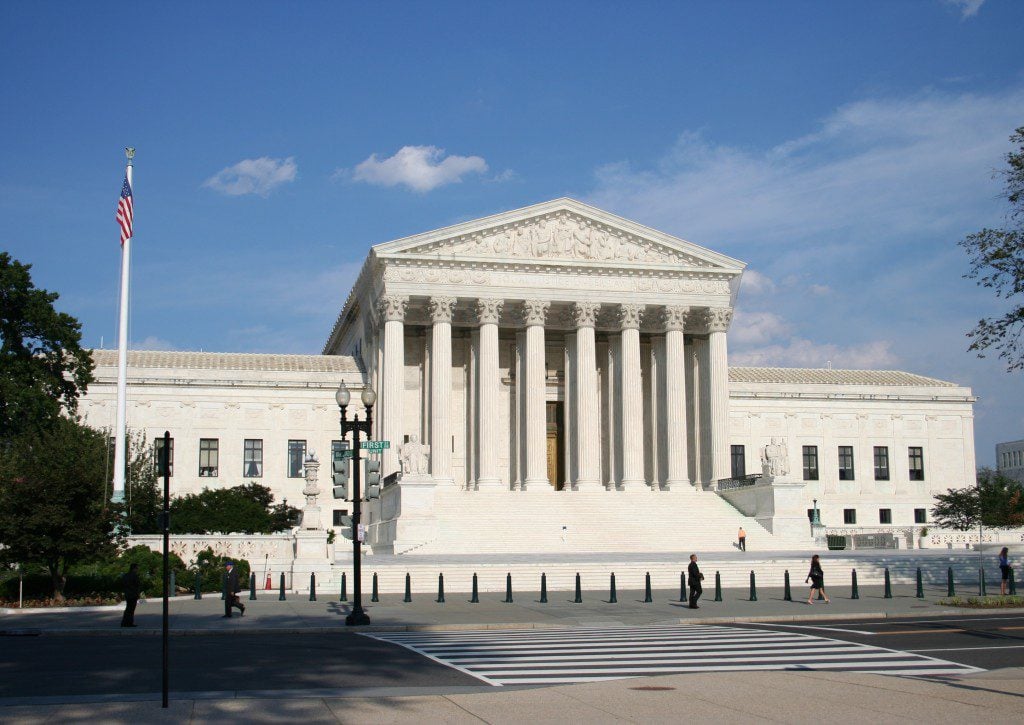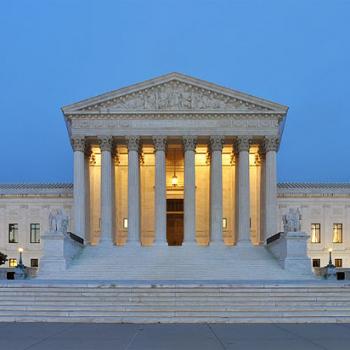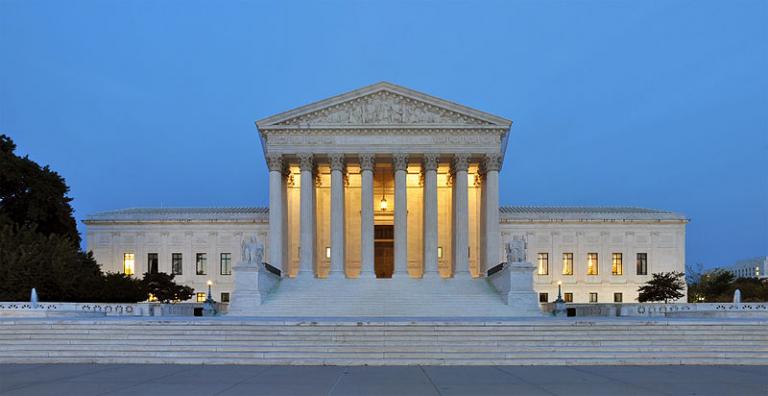Back from a long-weekend visit back to my parents, with no blogging despite the multiple bloggable events.
1. Three links:
Slate.com‘s summary of the impact of an 8-8 court on the major pending case of this term — Little Sisters, DAPA, etc.
Second, a Detroit News article that, regardless of “lame duck” issues, it’s exceedingly rare for a justice to die in office.
Third, an analysis from SCOTUSBlog on cases of nominations in lame duck years.
OK, maybe this isn’t a “thought” but I’ll keep it as the first item on the list.
2. I don’t really have any strong opinions on whether precendent supports the calls for the GOP to refuse to approve an Obama nominee. Certainly, I’ve read that Chuck Schumer is on record as having said, in 2007, that he supported his party doing exactly that if the shoe were on the other foot. Bush had gotten his two “alloted” nominations and wasn’t going to get any more; certainly the Democrats weren’t going to stand for a trade of a conservative for a liberal, even if they might tolerate a conservative for a conservative “even trade.” In November 1987, Reagan nominated and in February 1988, a Democratic Senate approved Anthony Kennedy — but this was only after a protracted drama when Reagan’s first nominee, in July, Robert Bork, was rejected.
So you could make arguements either way: either it’s just the Republicans’ bad luck, but they should suck it up; or it’s simply common sense that no one president should get more than two picks, or should not have the privilege to “change the balance” by appointing a liberal to replace a conservative, or the reverse. Everything I’ve read (though I haven’t read much) takes it for granted that no nominee will get through, and that potential nominations would be made with an eye to the sort of person (a black woman?) whose rejection would most rile up the base, not what nomination would be most acceptable to the GOP.
3. Regardless of of the lame-duckness, the bigger issue is that any justice coming in now has a clear view of what cases are going to be heard, to say nothing of those cases that have already been heard in oral arguments. Indeed, several of the highest-profile cases are cases in which the administration is directly involved — whether its religous accomodation for the Little Sisters is sufficient, and whether the President exceeded his authority in declaring de facto amnesty for the 5 million. This means that, in these circumstances, for the President to nominate a justice, and for the Senate to approve based on a liberal basis of judging competency and experience only, subverts the checks and balances of our system, since the President would be able to directly impact the Court’s decision — and it’s preposterous to imagine that Obama would select anyone if he wasn’t entirely certain they would vote his way on these specific, already-known cases. Which means that, everything else aside, no such newly-appointed justice would have any business voting on these cases — they’d have to basically recuse themselves from every decision this term, except, if any exist, cases on which Obama is demonstrably indifferent.
4. None of this would be an issue if there weren’t so many cases that are so very partisan, and so legislative in nature, being decided at the Supreme Court level — both due to executive branch overreach, the finding and deliniating of unwritten “rights”, interpretation of law based seemingly in desired outcome rather than faithfulness to process and interpretation of text, and ongoing disputes of other kinds.
5. If we have a de facto rule that each president gets two picks, or only gets to replace like with like, then maybe we need to move this a formal rule — perhaps not of “like with like” but with a fixed number of picks — say, one or two per term. Of course, this would have to be paired with a maximum number of years of service for justice, so that, for the most part, openings are more predictable. Yeah, we’d need an amendment — but if we could amend the constitution to permit voting at age 18, for instance, or some of the other more recent amendments, why should this be so impossible?
Bonus thought: there are now speculations out there that Scalia was killed. Reportedly, he was found with a pillow over his head, and the rush to bury without an autopsy was suspicious. Have you heard this? Do you think there is even the remotest chance of this being true?
Image: the Supreme Court Building, from Wikipedia.














